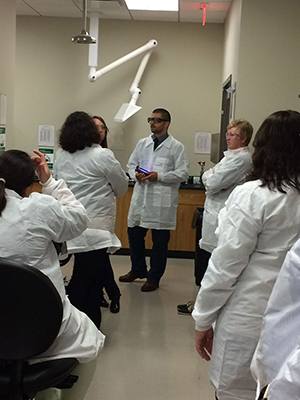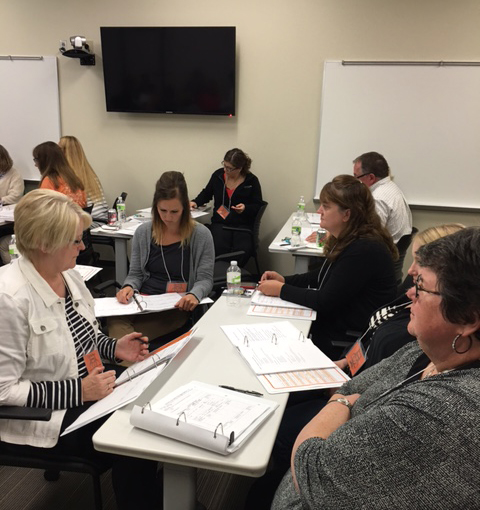
| March 2017 | |||||||||||
| Top stories | |||||||||||
| In the news | |||||||||||
| Photos | |||||||||||
| Contact us | |||||||||||
| Archive | |||||||||||
|
Biosafety training offered to clinical laboratorians |
March 30, 2017 --
The State Hygienic Laboratory has several upcoming biosafety education opportunities for clinical laboratory professionals in Iowa.
Packaging and Shipping: Division 6.2 Materials
The Coralville and Ankeny State Hygienic Labs are hosting one-day courses on April 25 and April 27, respectively, for laboratorians who package, ship and transport Division 6.2 hazardous materials such as infectious substances or biological specimens.
Topics include how to classify, mark, label and document these materials for shipment. Those who successfully complete the program will earn seven Professional Acknowledgement for Continuing Education (P.A.C.E.) contact hours and meet Department of Transportation training requirements. Download the course flyer for instructions on how to register.
 Drew Fayram, Safety Officer, speaks to laboratorians about biosafety in 2016.
Drew Fayram, Safety Officer, speaks to laboratorians about biosafety in 2016. Online Biosafety Training
The 2017 Iowa Clinical Laboratory Safet-eTraining package is available to Iowa clinical laboratorians interested in expanding their laboratory safety training. Lab professionals interested in completing the courses must serve in a bench-level, supervisory or management role at an Iowa clinical laboratory.
The curriculum includes:
- Biological Safety Cabinets (4 P.A.C.E. contact hours)
- Ebola Virus Disease and Clinical Laboratory Safety in the United States (1.5 P.A.C.E. contact hours)
- Laboratory Safety and Infection Control (1 P.A.C.E. contact hour)
- Packaging and Shipping Infectious Materials (2 P.A.C.E. contact hours)
- Risk Management in the Clinical Laboratory (1 P.A.C.E. contact hour)
These online courses are being offered at no cost thanks to funding from the Epidemiology Laboratory Capacity Cooperative Agreement Laboratory Safety Project in cooperation with the American Society for Clinical Laboratory Science Continuing Education (ASCLS CE) and their associated providers.
Applications will be accepted through June 30, or until the remaining funding is used. All courses must be completed by Dec. 31.
Work Practices and Procedures
The Eagleson Institute’s Clinical Laboratory Work Practices and Procedures workshop will be held at the Hygienic Lab in Coralville, July 19-20. This two-day, biosafety-oriented workshop is offered free of charge. The Hygienic Lab will reimburse travel, food and lodging expenses.
Sessions are expected to include:
- Performing a risk assessment;
- Donning and doffing personal protective equipment;
- Effective use of safety equipment;
- Preventing laboratory-acquired infections;
- Emergency planning;
- Sample collection, receiving, processing and storage; and
- Waste management.
Watch for the formal announcement and registration information on the Hygienic Laboratory website.
